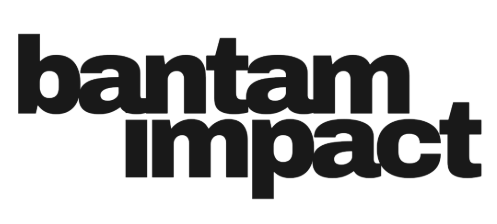The Rise of AI Mediators: A New Chapter in Workplace Conflict Resolution
AI-Powered Workplace Mediation: Enhancing Human Expertise for Conflict Resolution
When Sarah assumed her role as Head of Human Resources at a multinational tech firm in early 2025, she faced a challenge that was unthinkable just a few years ago: integrating artificial intelligence into the workplace mediation process. Sarah’s story represents a transformation underway in organizations across the globe, where conflict resolution is evolving at the intersection of human expertise and technological innovation.
A New Era for Workplace Mediation
Workplace mediation has long been rooted in human connection. Skilled mediators have historically relied on emotional intelligence, cultural awareness, and conflict resolution expertise to guide conflicting parties toward mutual understanding. But today’s workplace dynamics—including distributed teams, digital communications, and cultural complexities—demand new tools and approaches.
The introduction of AI-assisted mediation tools isn’t about replacing human mediators; it’s about enhancing their work. According to a 2024 report by McKinsey & Company, organizations that integrate AI into their HR functions saw a 25% reduction in unresolved conflicts due to the speed and precision of AI-powered conflict detection. These innovations offer mediators a chance to improve efficiency while maintaining their essential human touch.
Leveraging Technology for Prevention and Resolution
In Sarah’s first month, her company’s AI-powered system flagged communication patterns indicating brewing tensions between two international teams—one in Singapore and one in Brazil. Before the conflict escalated, she used real-time AI translation tools to facilitate an early mediation session. By removing language barriers, the conversation unfolded more openly, allowing the teams to address their issues before they became unmanageable.
Yet, when a more sensitive conflict arose—a cultural misunderstanding between two senior team leads—Sarah quickly saw the limitations of technology. While the AI system summarized the exchange, it took Sarah’s human intuition to read the nonverbal cues, acknowledge the underlying power dynamics, and guide the conversation toward a deeper resolution. This blend of AI insights and human connection made all the difference.
The Hybrid Mediation Advantage
Hybrid mediation—where technology and human expertise intersect—has yielded significant benefits for organizations:
• Increased Efficiency: AI-assisted scheduling and case preparation streamline mediation processes, cutting preparation time by up to 40% according to recent industry studies.
• Deeper Insights: AI tools can analyze digital communication records to identify recurring conflict themes, empowering mediators to address systemic issues proactively.
• Enhanced Documentation: Automatic transcription and pattern analysis improve the accuracy and completeness of case records.
Despite these advancements, empathy, trust-building, and cultural awareness remain beyond the reach of AI. Human mediators must interpret emotional subtext, respond to unique interpersonal dynamics, and foster authentic dialogue—skills no algorithm can replicate.
Setting a New Standard for Workplace Conflict Resolution
Organizations ready to integrate AI into their mediation processes must do so thoughtfully. A successful strategy includes:
1. Assessing Existing Processes: Identify pain points where technology can add value, such as case intake, documentation, or translation.
2. Training for Synergy: Invest in training programs to ensure mediators are proficient in using AI tools while maintaining their core mediation skills.
3. Establishing Clear Protocols: Define when to use AI-assisted tools versus when a human-led, empathetic approach is needed.
4. Safeguarding Privacy: Ensure that AI systems comply with strict data privacy regulations to protect sensitive information shared during mediation.
According to Gartner, 73% of organizations plan to implement AI in their HR functions by 2027, making it imperative for HR leaders to develop robust frameworks now to stay ahead of the curve.
Embracing the Future Without Losing the Human Touch
The integration of AI into workplace mediation represents more than a technological advancement—it marks a paradigm shift in how organizations approach conflict resolution. The most successful organizations will balance innovation with human connection, using AI to enhance—not replace—the interpersonal dynamics that make mediation effective.
For HR leaders, mediators, and workplace consultants, this evolution presents an opportunity to amplify their impact. Instead of fearing technological advancements, mediators can embrace them as tools that allow for earlier intervention, faster resolutions, and broader accessibility—all while preserving the human skills that remain at the heart of conflict resolution.
Partnering for Your Workplace Success
At Bantam Impact Consulting, we understand that the future of workplace mediation lies in a thoughtful balance of tradition and innovation. Our customized mediation services are designed to meet the needs of modern organizations by combining expert human facilitation with the strategic integration of AI-driven insights.
To support organizations in navigating this new landscape, we’re excited to offer Winter Specials on our mediation services—a limited-time opportunity to partner with a boutique consulting firm that prioritizes meaningful, lasting outcomes.
If your organization is ready to foster more harmonious workplace dynamics, let’s start a conversation. Together, we’ll create a tailored strategy that leverages the best of both human expertise and technological innovation to resolve conflicts and strengthen your workplace culture.
Bantam Impact Consulting: Where Human Connection Meets Strategic Innovation



